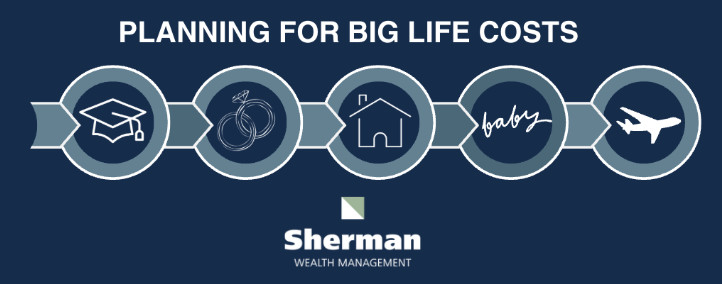Plan Big Life Expenses with Confidence (Without Feeling Overwhelmed)

Your 20s and 30s are full of exciting milestones—moving to a new city, buying your first home, growing your family, shifting careers, or even launching a business. These are big life moves, and while they often come with joy and excitement, they also bring significant financial pressure.
The good news? You don’t have to feel overwhelmed. With thoughtful planning and intentional strategies, you can confidently navigate big expenses while still enjoying your life along the way. Before you can plan for the future, you need a clear picture of where you are now. That begins with building a strong financial foundation. So while this might seem daunting or overwhelming, we’re going to breakdown some simple steps to take action on and where to start.
First, create a budget based on your actual income—not what you hope to earn someday. Track your spending for a few months to see exactly where your money is going. This insight gives you control and helps you spot opportunities to cut back or reallocate funds more intentionally. Once you’ve got the basics covered, prioritize high-impact actions: saving regularly and paying down high-interest debt. These two moves help create momentum—and peace of mind.
Next, always be prepared or the unexpected. Life rarely unfolds exactly as planned. That’s why an emergency fund is so important. Aim to save several months worth of essential living expenses in a high-yield savings account. And no- there is no one size fits all answer on how much that amount should be. That number is determined by several factors, including risk tolerance, fixed expenses, and upcoming goals. It’s normal for it to feel out of reach at first. Start small- saving any amount is better than none and holding yourself accountable to savings will help you build your wealth over time. Another helpful tip to remember is: automation is your best friend. Set up regular transfers, even if they’re small. Over time, your emergency fund becomes your financial safety net, helping you weather life’s curveballs without derailing your progress.
Financial planning doesn’t mean cutting out all the fun. In fact, budgeting for fun can keep you motivated and aligned with your values. Whether it’s travel, wellness, hobbies, or learning, intentional spending on things that matter to you is just as important as saving. Using frameworks like the ‘bucket strategy’, and determining your wants versus your needs can help you strike the balance and build a healthy budget.
Also, pay yourself first. Prioritize your savings and goals before discretionary spending. That one shift can change your entire relationship with money. Financial Planning isn’t a one-time event—it’s an ongoing process and road map that is constantly shifting paths and making stops along the way. Promotions, moves, relationships, children—your financial needs will evolve. Revisit your goals regularly. Are your savings still on track? Do you need to reallocate your budget? Have your priorities changed?
Checking in quarterly or after major life events keeps your plan relevant and your goals within reach.
So, let’s summarize with some ‘Quick-Start” Steps:
- Track income and expenses for one month to know where your money goes.
- Automate small savings—even $50/month—to a high-yield account.
- Prioritize and identify strategies to paying off high-interest debt
- Set several financial targets (e.g., $5K emergency, $20K down payment) and contribute monthly.
- Ensure your budget includes room for enjoyable choices—values-aligned spending keeps motivation high.
Ready to feel more confident about your next big move? Whether you’re saving for a home, building an emergency fund, or just trying to get your budget on track, we’re here to help. Email us at info@shermanwealth.com or book a free consultation to start building a financial plan that fits your life now—and grows with you.
